| Speaker of the Senate of Canada | |
|---|---|
| Président du Sénat du Canada | |
| Senate of Canada | |
| Style | The Honourable |
| Appointer | The governor general on the advice of the prime minister |
| Term length | At His Majesty's pleasure |
| Inaugural holder | Joseph-Édouard Cauchon |
| Formation | November 5, 1867 |
| Salary | $230,500[1] |
| Website | sencanada |
 |
|---|
The speaker of the Senate of Canada (French: président du Sénat du Canada) is the presiding officer of the Senate of Canada. The speaker represents the Senate at official functions, rules on questions of parliamentary procedure and parliamentary privilege, and presides over debates and voting in the chamber. The office of the speaker is held by Raymonde Gagné who has held the position since May 16, 2023.[2]
Appointment and precedence
By convention, the speaker of the Senate is appointed by the governor general on the advice of the prime minister.[3]
The speaker of the Senate takes precedence only after the monarch, the governor general, members of the Canadian Royal Family, former governors general and their spouses, the prime minister, former prime ministers, and the chief justice of Canada in the Canadian Order of Precedence.[4]
History of the speaker
The role of the speaker in the Senate was originally based on that of the lord chancellor in the United Kingdom, who presided over the British House of Lords. In keeping with the role of the lord chancellor, the speaker of the Senate was expected to be partisan; the speaker of the Senate would, at all times, have the right to leave the chair, to participate in debates, and to hold an original vote—unlike the speaker of the House of Commons, who has a vote only in the event of a tie.
The speaker of the Senate was also similar to the lord chancellor in being considered equal to other senators. Decisions of the chair were not binding on the Senate unless the speaker's decision was also the pleasure of a majority of senators. Also similar to the practice of the House of Lords was that the speaker would not intervene unless another senator brought a matter to the attention of the speaker. Decisions from the chair remain subject to appeals from the Senate.
Canada has more recently departed from the traditions of the House of Lords, notably since 1991, when new rules for the Senate were adopted. The new Standing Orders have made it clear that the speaker of the Senate could intervene without being called to do so by the Senate. The new guidelines move the Senate further from the model of the self-governing practices of the House of Lords, and more toward the chair-governed customs of the House of Commons.
The position was preceded by the speaker of the Legislative Council of the Province of Canada.
Role of the speaker

The speaker of the Senate is historically responsible for deciding on points of order, only once risen by another senator. However, with the 1991 amendments to the Standing Orders and Guidelines that govern the Senate of Canada, the speakership has generally begun to assert its right to intervene, where appropriate, without being prompted to do so. Therefore, the speaker is, broadly speaking, responsible for the maintenance of order and decorum in the Senate.
As a high-ranking individual on the order of precedence, the speaker of the Senate often receives visiting heads of state and heads of government — this role is not merely ceremonial; the speaker is a real delegate and representative of Canada abroad. They are expected to represent Canada internationally, and sometimes visit other nations on behalf of the Government of Canada.
While the speaker is an officer of the Senate, the speaker as a senator also remains a representative of the province or territory from which they were appointed. Unlike the speaker of the House of Commons, the speaker of the Senate has the right to participate in debates. The speaker has the right and power to cast an original vote, and to simultaneously preside over the voting process (rather than the speaker merely delivering a tie-breaking vote).
Another significant difference between the two speakers is that the speaker of the House of Commons holds a management role within the administration of the House of Commons and chairs the Board of Internal Economy. The speaker of the Senate holds no similar role, as the Senate's Standing Committee on Internal Economy, Budgets, and Administration is chaired by another senator.
In the absence of the speaker in the chamber, their duties are carried by the speaker pro tempore, a senator appointed at the beginning of each session by the Senate. Should both chair officers be absent, any senator can be called upon to take the chair. Irrespective of who is in the chair, their decisions hold the same force as that of the speaker of the Senate.
Ceremony
The speaker of the Senate performs the Senate Speaker's Parade to mark the opening of a sitting in the Senate with the help of the Black Rod.[5]
List of speakers of the Senate
Key:
| No. | Portrait | Name (Birth–Death) |
Term of office | Party | ||
|---|---|---|---|---|---|---|
| Took office | Left office | |||||
| 1 |  |
Joseph-Édouard Cauchon Senator for Stadacona, Quebec (1816–1885) |
November 5, 1867 |
May 16, 1869 |
Independent Conservative | |
| 2 | John Ross Senator for Ontario (1818–1871) |
May 17, 1869 |
May 26, 1869 |
Conservative | ||
| (1) |  |
Joseph-Édouard Cauchon Senator for Stadacona, Quebec (1816–1885) |
May 27, 1869 |
June 2, 1872 |
Independent Conservative | |
| 3 | 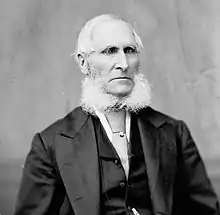 |
Amos Edwin Botsford Senator for New Brunswick (1804–1894) |
June 3, 1872 |
June 5, 1872 |
Conservative | |
| (1) |  |
Joseph-Édouard Cauchon Senator for Stadacona, Quebec (1816–1885) |
June 6, 1872 |
June 30, 1872 |
Independent Conservative | |
| 4 | 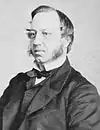 |
Pierre-Joseph-Olivier Chauveau Senator for Stadacona, Quebec (1820–1890) |
February 21, 1873 |
January 8, 1874 |
Conservative | |
| 5 | 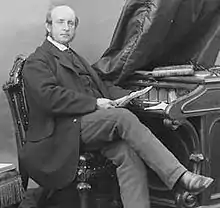 |
David Christie Senator for Erie, Ontario (1818–1880) |
January 9, 1874 |
October 16, 1878 |
Liberal | |
| 6 |  |
Robert Duncan Wilmot Senator for New Brunswick (1809–1891) |
November 7, 1878 |
February 10, 1880 |
Conservative | |
| 7 |  |
David Lewis Macpherson Senator for Saugeen, Ontario (1818–1896) |
February 11, 1880 |
February 15, 1880 |
Conservative | |
| (3) |  |
Amos Edwin Botsford Senator for New Brunswick (1804–1894) |
February 16, 1880 |
April 18, 1880 |
Conservative | |
| (7) |  |
David Lewis Macpherson Senator for Saugeen, Ontario (1818–1896) |
April 19, 1880 |
October 16, 1883 |
Conservative | |
| 8 | 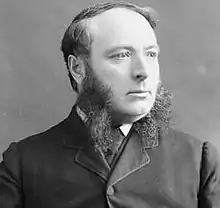 |
William Miller Senator for Richmond, Nova Scotia (1835–1912) |
October 17, 1883 |
April 3, 1887 |
Liberal- Conservative | |
| 9 |  |
Josiah Burr Plumb Senator for Ontario (1816–1888) |
April 4, 1887 |
March 12, 1888 |
Conservative | |
| 10 |  |
George William Allan Senator for York, Ontario (1822–1901) |
March 17, 1888 |
April 26, 1891 |
Conservative | |
| 11 | 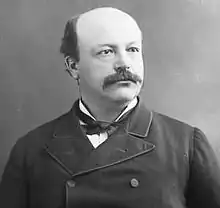 |
Alexandre Lacoste Senator for De Lorimier, Quebec (1842–1923) |
April 27, 1891 |
September 13, 1891 |
Conservative | |
| 12 |  |
John Jones Ross Senator for De la Durantaye, Quebec (1831–1901) |
September 14, 1891 |
July 12, 1896 |
Conservative | |
| 13 |  |
Charles Alphonse Pantaléon Pelletier Senator for Grandville, Quebec (1837–1911) |
July 13, 1896 |
January 28, 1901 |
Liberal | |
| 14 |  |
Lawrence Geoffrey Power Senator for Halifax, Nova Scotia (1841–1921) |
January 29, 1901 |
January 8, 1905 |
Liberal | |
| 15 | .jpg.webp) |
Raoul Dandurand Senator for De Lorimier, Quebec (1861–1942) |
January 9, 1905 |
January 13, 1909 |
Liberal | |
| 16 | 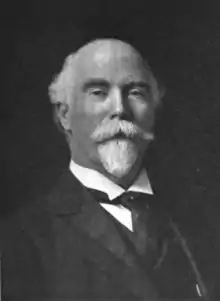 |
James Kirkpatrick Kerr Senator for Toronto, Ontario (1841–1916) |
January 14, 1909 |
October 22, 1911 |
Liberal | |
| 17 | 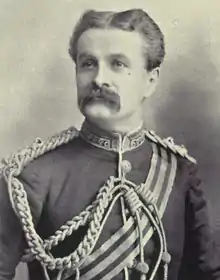 |
Auguste Charles Philippe Robert Landry Senator for Stadacona, Quebec (1846–1919) |
October 23, 1911 |
June 2, 1916 |
Conservative | |
| 18 |  |
Joseph Bolduc Senator for Lauzon, Quebec (1847–1924) |
June 3, 1916 |
February 6, 1922 |
Nationalist Conservative | |
| 19 | 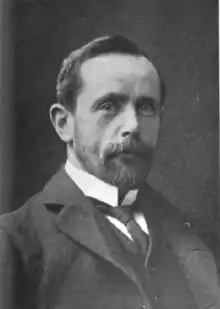 |
Hewitt Bostock Senator for Kamloops, British Columbia (1864–1930) |
February 7, 1922 |
May 12, 1930 |
Liberal | |
| 20 | 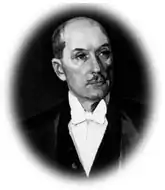 |
Arthur Charles Hardy Senator for Leeds, Ontario (1872–1962) |
May 13, 1930 |
September 2, 1930 |
Liberal | |
| 21 | 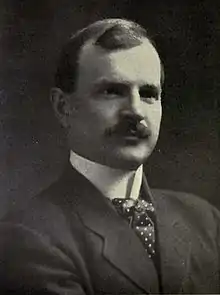 |
Pierre-Édouard Blondin Senator for The Laurentides, Quebec (1874–1943) |
September 3, 1930 |
January 10, 1936 |
Conservative | |
| 22 | 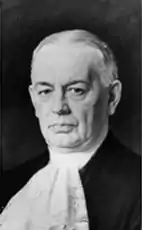 |
Walter Edward Foster Senator for Saint John, New Brunswick (1873–1947) |
January 11, 1936 |
May 8, 1940 |
Liberal | |
| 23 | 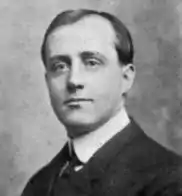 |
Georges Parent Senator for Kennebec, Quebec (1879–1942) |
May 9, 1940 |
December 14, 1942 |
Liberal | |
| 24 | 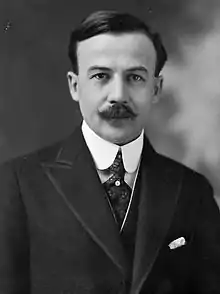 |
Thomas Vien Senator for De Lorimier, Quebec (1881–1972) |
January 23, 1943 |
August 23, 1945 |
Liberal | |
| 25 | 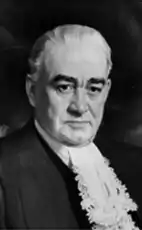 |
James Horace King Senator for Kootenay East, British Columbia (1873–1955) |
August 24, 1945 |
August 2, 1949 |
Liberal | |
| 26 |  |
Élie Beauregard Senator for Rougemont, Quebec (1884–1954) |
August 3, 1949 |
October 13, 1953 |
Liberal | |
| 27 | Wishart McLea Robertson Senator for Shelburne, Nova Scotia (1891–1967) |
October 14, 1953 |
October 3, 1957 |
Liberal | ||
| 28 |  |
Mark Robert Drouin Senator for La Salle, Quebec (1903–1963) |
October 4, 1957 |
September 23, 1962 |
Progressive Conservative | |
| 29 | George Stanley White Senator for Hastings–Frontenac, Ontario (1897–1977) |
September 24, 1962 |
April 26, 1963 |
Progressive Conservative | ||
| 30 |  |
Maurice Bourget Senator for The Laurentides, Quebec (1907–1979) |
April 27, 1963 |
January 6, 1966 |
Liberal | |
| 31 |  |
Sydney John Smith Senator for Kamloops, British Columbia (1892–1976) |
January 7, 1966 |
September 4, 1968 |
Liberal | |
| 32 | Jean-Paul Deschatelets Senator for Lauzon, Quebec (1912–1986) |
September 5, 1968 |
December 13, 1972 |
Liberal | ||
| 33 | 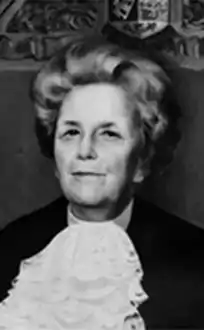 |
Muriel McQueen Fergusson Senator for Frederickton, New Brunswick (1899–1997) |
December 14, 1972 |
September 11, 1974 |
Liberal | |
| 34 | Renaude Lapointe Senator for Mille Isles, Quebec (1912–2002) |
September 12, 1974 |
October 4, 1979 |
Liberal | ||
| 35 | Allister Grosart Senator for Pickering, Ontario (1906–1984) |
October 5, 1979 |
March 3, 1980 |
Progressive Conservative | ||
| 36 |  |
Jean Marchand Senator for De la Vallière, Quebec (1918–1998) |
March 4, 1980 |
December 15, 1983 |
Liberal | |
| 37 | Maurice Riel Senator for Shawinegan, Quebec (1922–2007) |
December 16, 1983 |
November 1, 1984 |
Liberal | ||
| 38 | Guy Charbonneau Senator for Kennebec, Quebec (1922–1998) |
November 2, 1984 |
December 6, 1993 |
Progressive Conservative | ||
| 39 | Roméo LeBlanc Senator for Beauséjour, New Brunswick (1927–2009) |
December 7, 1993 |
November 21, 1994 |
Liberal | ||
| 40 | 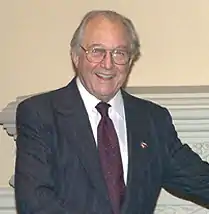 |
Gildas Molgat Senator for Saint Rose, Manitoba (1927–2001) |
November 22, 1994 |
January 25, 2001 |
Liberal | |
| 41 | Dan Hays Senator for Calgary, Alberta (born 1939) |
January 26, 2001 |
February 7, 2006 |
Liberal | ||
| 42 |  |
Noël Kinsella Senator for Fredericton–York–Sunbury, New Brunswick (1939–2023) |
February 8, 2006 |
November 26, 2014 |
Conservative | |
| 43 | 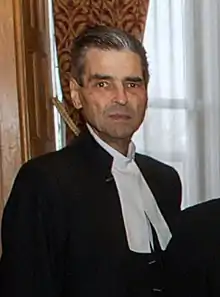 |
Pierre Claude Nolin Senator for De Salaberry, Quebec (1950–2015) |
November 27, 2014 |
April 23, 2015 |
Conservative | |
| 44 | Leo Housakos Senator for Wellington, Quebec (born 1968) |
April 24, 2015 |
December 2, 2015 |
Conservative | ||
| 45 | 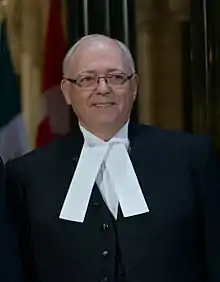 |
George Furey Senator for Newfoundland and Labrador (born 1948) |
December 3, 2015 |
May 12, 2023 |
Independent | |
| 46 | .jpg.webp) |
Raymonde Gagné Senator for Manitoba (born 1956) |
May 16, 2023 |
Incumbent | Independent | |
Hays, Housakos, and Furey are the only current living former speakers of the Senate.
Several speakers have died during their time in office:
- Josiah Burr Plumb, 1888
- Hewitt Bostock, 1930
- Georges Parent, 1942
- Pierre Claude Nolin, 2015
External links
References
- ↑ "Indemnities, Salaries and Allowances". Library of Parliament.
- ↑ "Manitoba Sen. Raymonde Gagné named Speaker of the Senate". CBC News. 2023-05-12. Archived from the original on 2023-05-13.
- ↑ Canada, Senate of. "Senate Procedural Note No. 9 - The Speaker of the Senate". SenCanada. Retrieved 2022-10-16.
- ↑ Heritage, Canadian (2017-10-16). "Table of Precedence for Canada". www.canada.ca. Retrieved 2022-10-16.
- ↑ "The Senate Speaker's Parade". Parliament of Canada. Retrieved 2013-06-16.